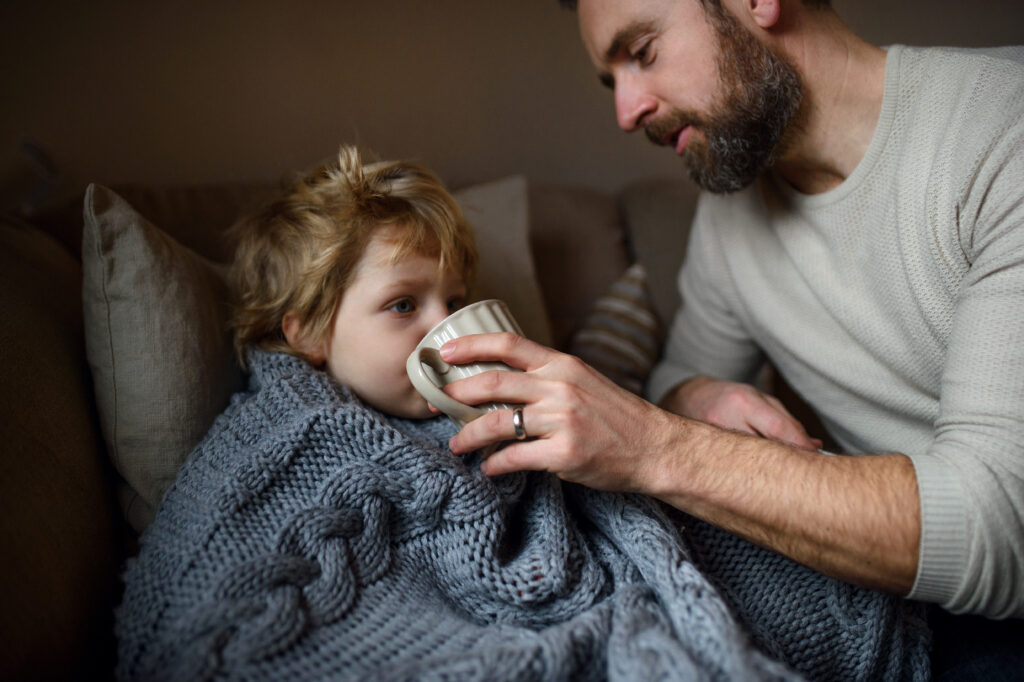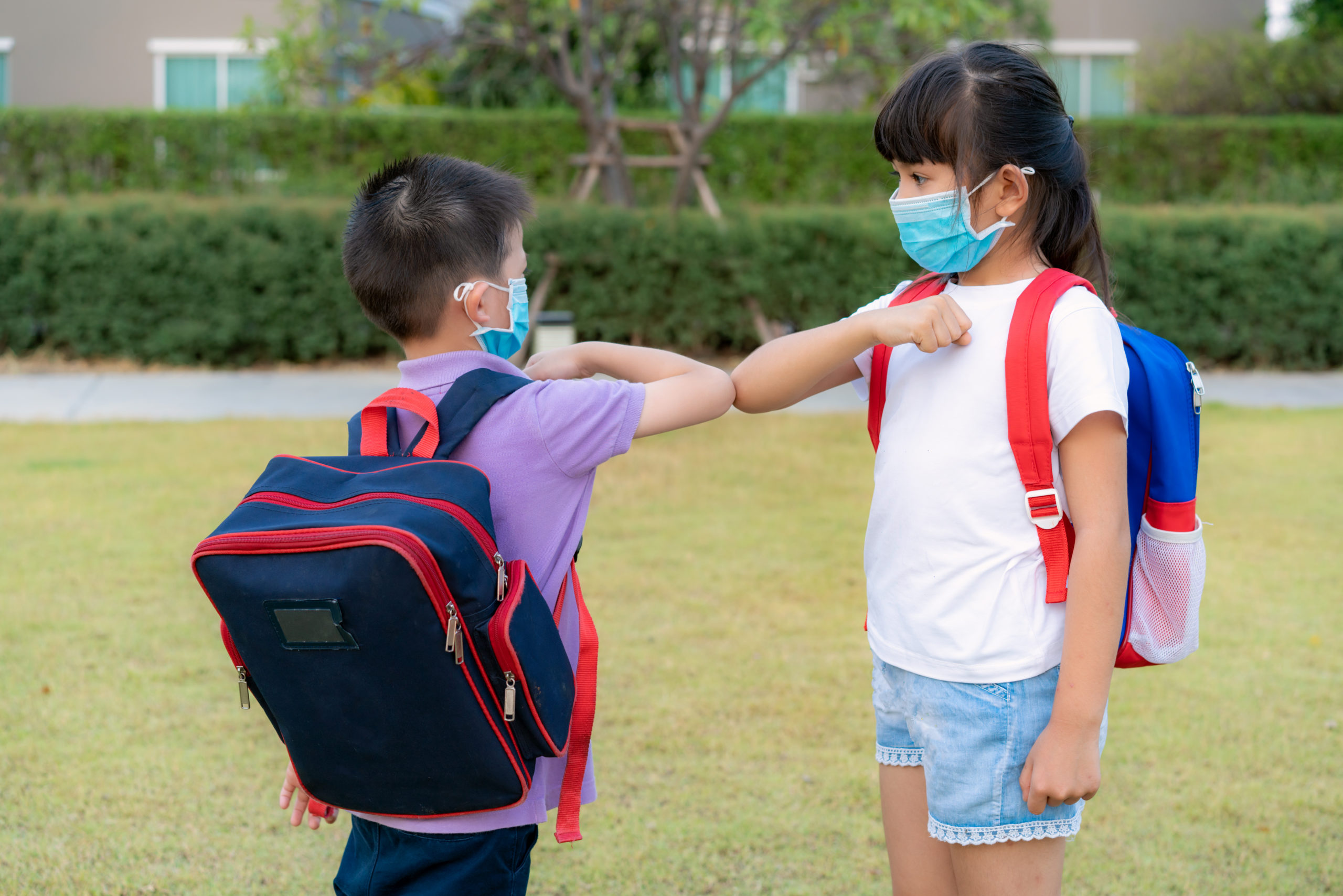Contributor Dr. Elise Herman
As the winter weather approaches, so does the ‘sick season’, including illness due to RSV (Respiratory Syncytial Virus). RSV typically starts in fall, peaks in winter, and causes cold symptoms including runny nose, cough, and fever in children and adults. Most kids have had RSV by age 2. Although usually mild, RSV can cause more serious problems like wheezing, pneumonia, and trouble breathing. These problems are more likely in premature babies or in kids with heart disease, lung issues like asthma, and immune system problems. Between 58,000 and 80,000 kids under age 5 are hospitalized due to RSV each year. Adults aged 60 and above are also at higher risk of more severe RSV illness. Reinfections with RSV are common.

Like other colds viruses, RSV spreads by the droplets released by coughing or sneezing. You can also get it by direct contact (for example kissing) or touching a contaminated surface like a counter or cup and then touching your eyes, nose, or mouth.
There is no effective treatment for RSV and since it is a virus, antibiotics do not help. There are, however, two new good ways to prevent RSV—vaccines for adults and antibody treatment for young children. Vaccines stimulate the formation of antibodies to help fight infection (active immunity). Antibody treatments give antibodies directly to the body (passive immunity).
RSV vaccines are available for those 32-36 weeks pregnant during RSV season and if given at least 2 weeks before delivery, will help protect the baby from severe RSV. RSV vaccine is also recommended for those 60 years and older.
Antibody therapy (Nirsevimab) is approved for babies less than 8 months during RSV season (if mom did not get vaccine at least 2 weeks before delivery). Nirsevimab is also appropriate for some infants aged 8-19 months with severe health issues including extreme prematurity, immune system problems, cystic fibrosis, and heart disease. Nirsevimab is an injection and lasts 5 months, so helps protect for the entire RSV season. There is another antibody treatment called Palivizumab that has been used for years, but this is only approved for very high-risk children under age 2 and requires a monthly injection.
Side effects of Nirsevimab are uncommon and include temporary discomfort, redness or mild swelling at the injection site, and a rash. Nirsevimab can be given with routine childhood vaccines and may be given if a child has mild cold symptoms. Children who have had RSV should still receive the antibody therapy due to the risk of getting infected again later in the sick season.
There may be some difficulty having enough Nirsevimab for all kids who are eligible this year; contact your child’s provider about this. Supplies of RSV vaccine for those who are pregnant or 60 and over seem adequate; check with your provider or local pharmacy.
Remember the routine ways we can all help prevent the spread of RSV and other viruses, such as frequent hand-washing, avoiding touching one’s face, staying home if sick, and wearing a mask when appropriate. Also, cover sneezes and coughs, do not share cups or utensils, and keep countertops and other frequently touched surfaces clean. Don’t forget your child’s other important vaccines including Influenza and COVID vaccines as these are also important to help keep your child healthy this winter season.
more about The contributor

Dr. Elise Herman
Dr. Herman is passionate about community health outreach, school programs, and child/family health and wellness. She has more than 31 years of experience as a pediatrician in Ellensburg, Washington, the last 3 with KVH Pediatrics. In 2022 Dr. Herman mostly retired from practice and continues to contribute blog posts and remain a visible advocate for kids in the community.



